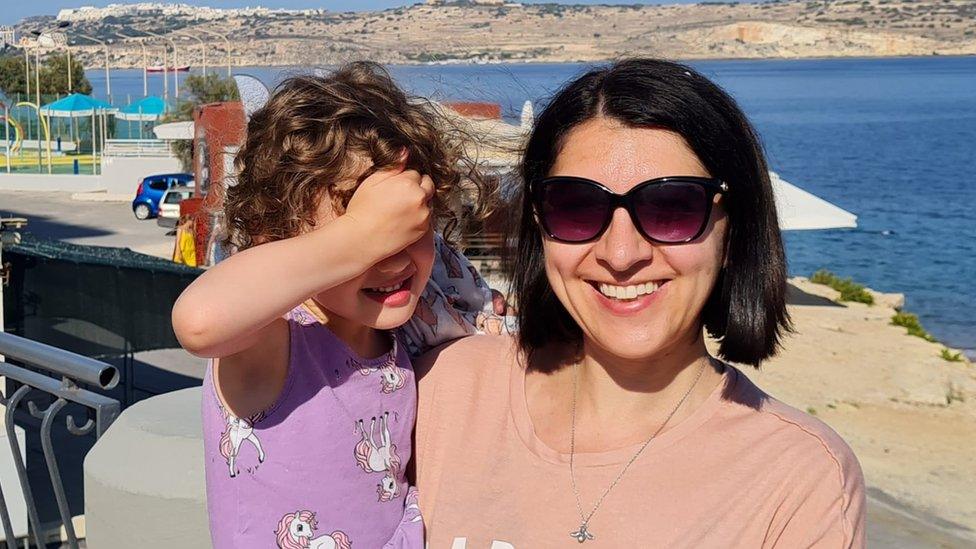IVF: The joy of baby twins for Belfast mother aged 49
- Published
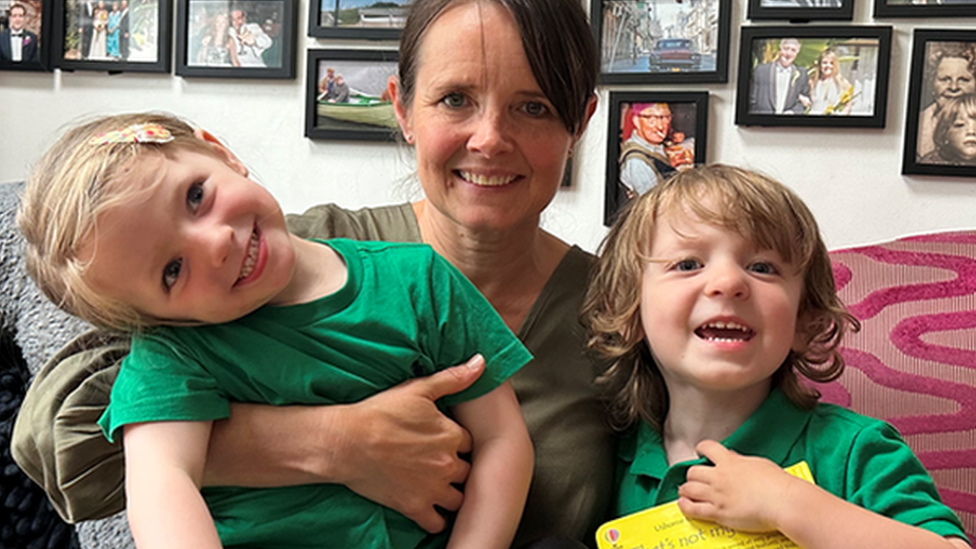
Gill Porter gave birth to twins Floyd and Jayla, when she was 49
The urge to become a mother - for Gill Porter, it was an unfulfilled desire that burned her up inside.
That's why she spent more than 10 years and £25,000 trying for a baby. That's why, after her fourth private IVF treatment, she found out she was pregnant with twins.
That's why she became a mum at the age of 49.
"I didn't feel I was that old. I didn't feel I was at the end of the road when it came to conceiving.
"As a woman I was determined to give it everything."
Her desire to become a mother was perhaps strengthened by the fact that Gill was adopted.
"I have fantastic parents and I've always thought adoption would be an alternative, but to have my own children has been life-changing," she added.
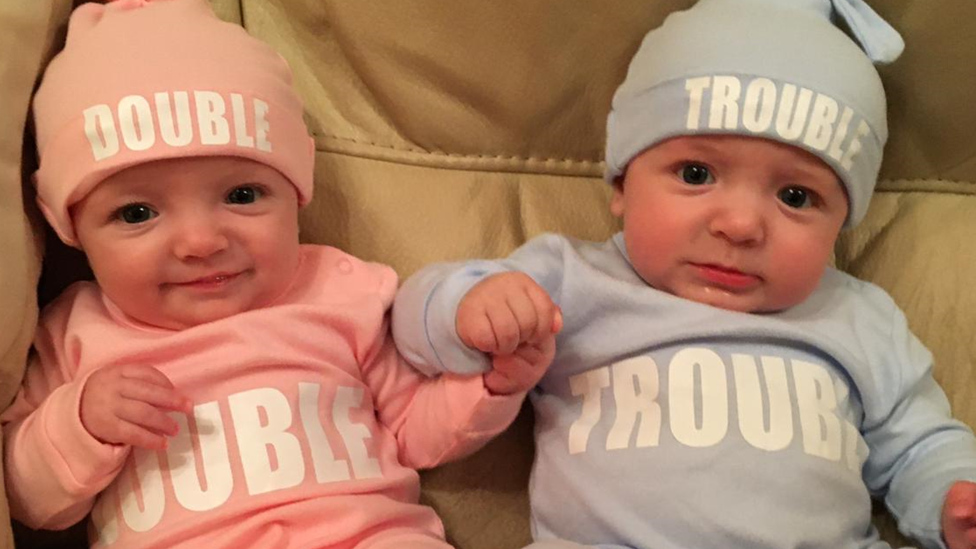
The journey to becoming a mum has been a long and expensive one
Now 52, and the mother of three-year-olds Floyd and Jayla, life is very different.
"There's no coming home after work and having dinner and a glass of wine," she laughed.
A long road
The journey to becoming a mum has been a long and expensive one.
And while Gill said the cost was very significant, it was something she does not take for granted, being aware that the private route is not open to everyone.
"At 39 I was too old to have a free NHS cycle so, along with my husband Phil, we had to go down the private route right away," she said.
"We had two private cycles here and we had to go to Glasgow for those as there wasn't anywhere that could do the whole process.
"Unfortunately both of those failed in the one year and then we left it for two years, and in 2015 we tried again and unfortunately it wasn't a success either.
"After three treatments we decided it was probably best to put it on hold or to give us a bit of a break.
"But I didn't have a lot of time for a break which was also in the back of my mind as well."
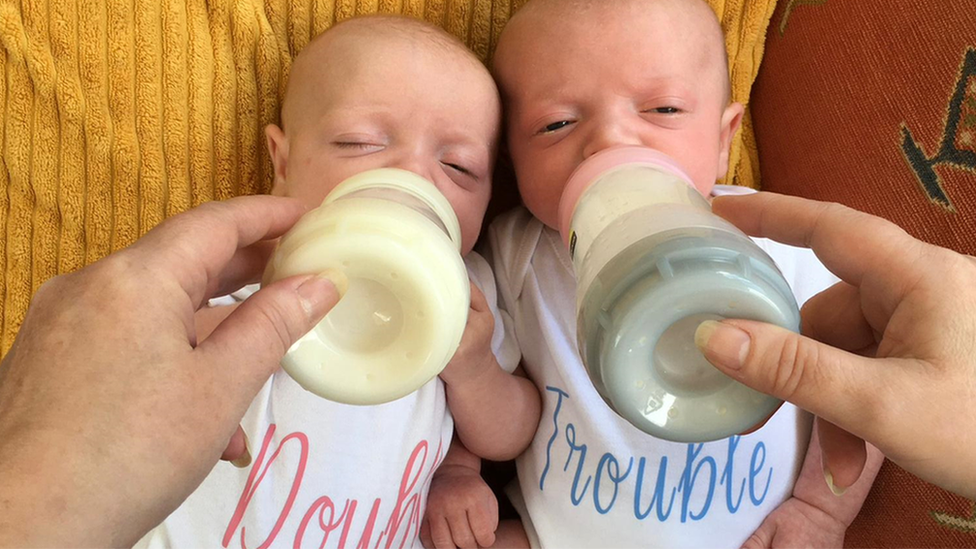
Gill and her partner found out at 28 weeks that the twins were a boy and girl
Gill runs a family-friendly café in east Belfast, which is popular with parents on maternity leave and families with young children.
So was it difficult to be surrounded by so many mums and their babies while she was struggling to conceive?
"It was sometimes," she said.
"One mum who had four children told me she was pregnant with her fifth child and that hit hard especially when she said the pregnancy was 'an accident'."
Then came the fourth cycle - an entirely different experience, Gill explained, at a clinic in Prague.
"It was very personal - when we had the treatment here I very much felt like a number.
"We were able to go away and not go to work between appointments and not have the stress of telling people what we were doing.
"It was the only thing we were focused on."
They returned with a bag of medication from the clinic and two pregnancy tests that were to be taken six weeks later - two days apart.
"When I got the first one, it was positive and the excitement was unbelievable.
"I phoned my parents and my Dad being the sensible person he is said: 'There's a reason you have two tests, they both need to be positive.'
"So we reeled in the excitement for two days and then the second one was positive too."
'Hit the jackpot'
The fact they were having twins was discovered at a 14-week scan and Gill said it was only then it started to sink in how close they had been to not becoming parents.
"In Europe, they won't give you IVF after 49 so it really was the last chance.
"And when we found out at 28 weeks that the twins were a boy and a girl, it really did feel that we'd hit the jackpot."
Just before giving birth, Gill was diagnosed with HELLP syndrome, a rare and potentially serious liver and blood clotting disease.
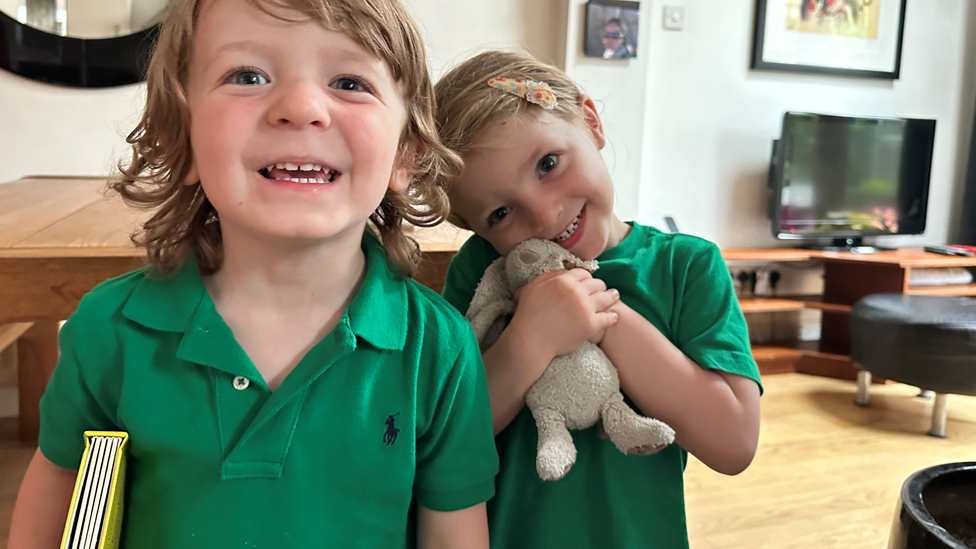
Twins Floyd and Jayla are now three-year-olds
She spent 10 days in hospital after the twins were born, but the doctors told her there was no way of knowing if it was connected to her age or not.
Gill is quick to point out that she knows how fortunate she is that the IVF worked, and that she had the means to pay for it.
"It does feel unfair to me that people who can't afford it potentially lose out on becoming parents and the fact that it's so limited on the NHS is also something I question," she added.
"There's only help if you're under 40 years old and people are having children later.
"Once you're 40 that help just seems to stop.
"I understand that when you have IVF when you're younger it's going to have a greater chance of success.
"So many illnesses and conditions are paid for on the NHS, but when it comes to having children, it's different and I know it's not classed as an illness but it is something wrong with you."
'We took it in our own hands'
Natalie Graham runs a support group for women going through the IVF process after facing her own challenges.
She told BBC News NI's Evening Extra that she had been referred for IVF treatment on the NHS but this was disrupted by the pandemic when she "heard nothing" from the health service.
"We took it into our own hands," she added, explaining that she then went for treatment privately in the Republic of Ireland.
Ms Graham said: "Our first initial appointment was in July [2020] and by October I was then pregnant with twins but unfortunately due to a complicated pregnancy we lost them at 17 weeks."
'Pinning hopes on NHS'
As she decided to go private, Ms Graham was still entitled to get one round on the NHS.
"My GP said that for her to refer me again I would need to lose weight," she said.
According to guidance published, external by the Belfast Trust, the eligible BMI scores for IVF referrals is between 19 and 30.
Ms Graham said this was something some women in her group "massively struggled with", in part due to the unknown wait times to receive treatments.
"It just adds another layer of pressure," she said.
Ms Graham ended up going privately for treatment once again with an embryo she previously had frozen.
The treatment was successful and she now has a nine-month-old Finn.
Reflecting on some of those in her group, Ms Graham said: "It's just heartbreaking. People who can't afford to go private are just pinning all their hopes on this free cycle from the NHS."
Stories like Gill and Natalie's are rare, but not unheard of.
In 2021, 32 women aged over 45 gave birth in Northern Ireland. Two of them were over 50.
The Belfast Health Trust runs the regional IVF service and said it does not keep figures for the number of women currently waiting on IVF.
The trust said some women were eligible for treatment up to the age of 42.
Related topics
- Published26 July 2022
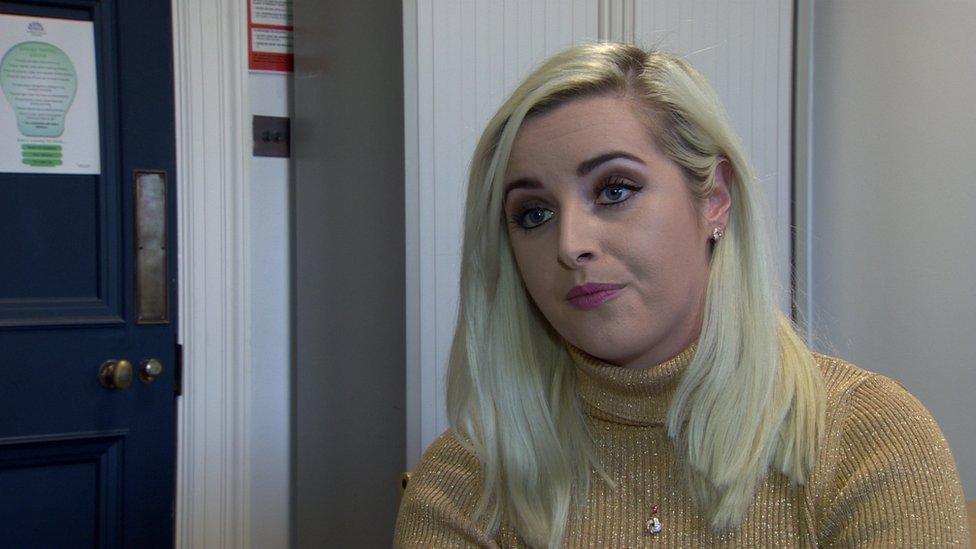
- Published16 July 2022
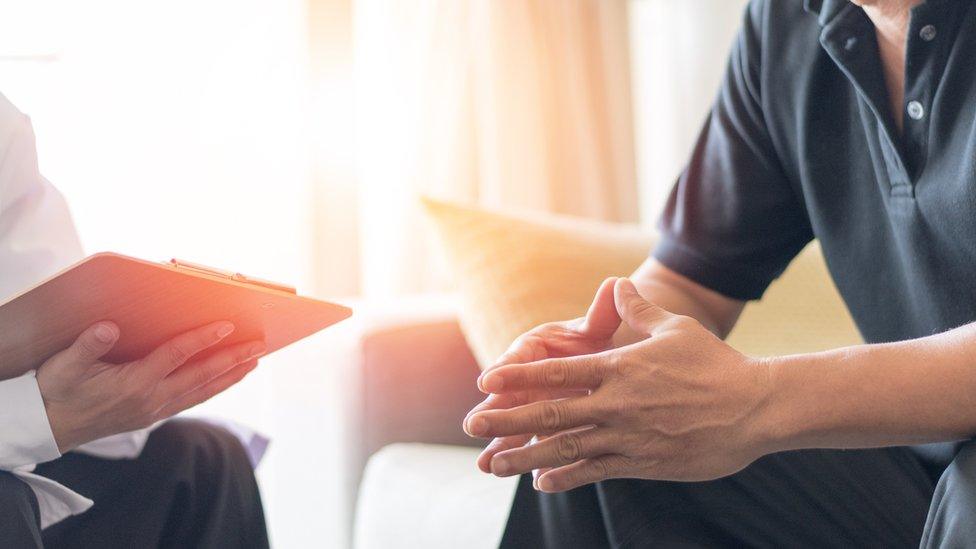
- Published3 July 2022
